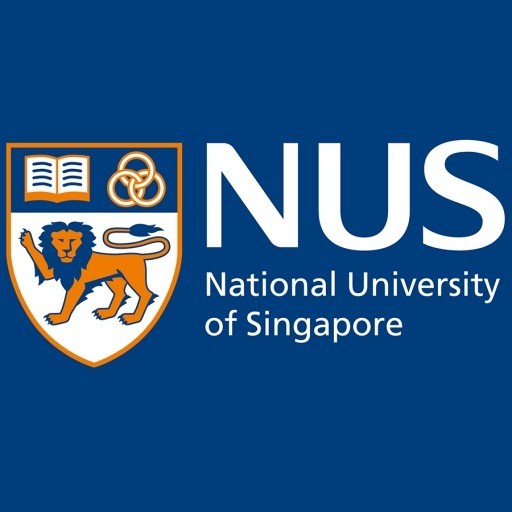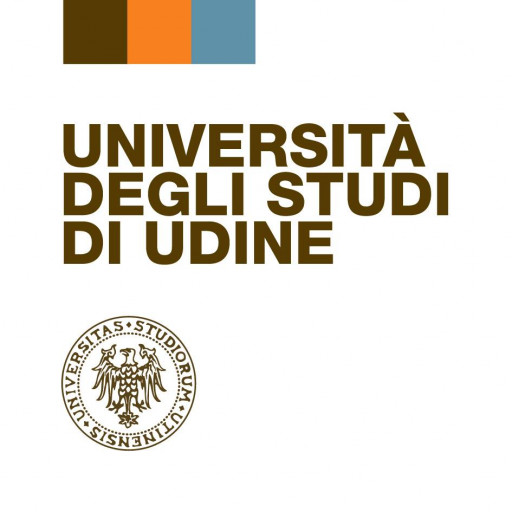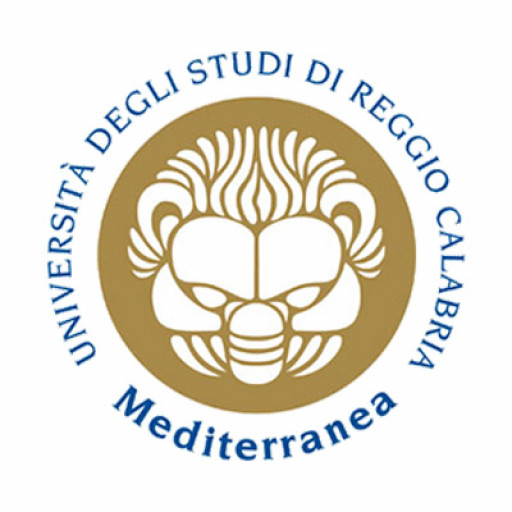Photos of university / #nus_singapore
Safety, Health, and Environmental Technology at the National University of Singapore provides students with a comprehensive and interdisciplinary education focused on safeguarding human health and the environment through the application of innovative safety management practices, environmental science, and technological solutions. This programme is designed to equip students with the core knowledge and practical skills necessary to identify, assess, and manage risks associated with various workplace and environmental hazards. It combines theoretical fundamentals with hands-on training, ensuring graduates are well-prepared to tackle real-world safety and environmental challenges across industries such as manufacturing, construction, healthcare, and transportation.
Throughout the course, students will study subjects including occupational safety and health, environmental engineering, risk assessment, industrial hygiene, accident investigation, environmental monitoring, and sustainability practices. The programme emphasizes the importance of compliance with regulatory standards, safety culture development, and the implementation of effective safety management systems. Specialised modules allow students to delve into areas such as hazardous materials management, fire safety engineering, chemical safety, and environmental law, preparing them to contribute to safer workplaces and healthier communities.
Students also benefit from collaboration with industry partners, internships, and research opportunities, which facilitate the application of learned concepts in practical settings. The programme aims to develop professionals who can lead safety initiatives, promote environmental stewardship, and innovate for sustainable development. Graduates will be equipped to pursue careers as safety officers, environmental consultants, risk managers, and sustainability specialists, making meaningful contributions to the well-being of society and the protection of our planet.
With a focus on innovation and interdisciplinary approaches, the Safety, Health, and Environmental Technology programme at NUS ensures students are prepared to meet the evolving demands of global safety and environmental challenges. The curriculum is regularly updated to reflect the latest industry standards, technological advancements, and policy developments, maintaining its relevance and excellence as a leading programme in safety, health, and environmental disciplines.
The Master of Science (Safety, Health and Environmental Technology) course, or MSc (SHE), is hosted by the Department of Chemical and Biomolecular Engineering. The programme accepts both full time and part time students. To qualify for the MSc (SHE) degree with or without an area of specialization, a candidate must successfully complete a programme of study consisting of at least 40 Modular Credits (MCs). In addition, a student must obtain a minimum CAP of 3.00 (Grade B-) for the best modules equivalent to 40 MCs (inclusive of compulsory modules, where required). A student may choose to graduate with one of the following:
- MSc (SHE)
- MSc (SHE) with specialisation in Industrial Hygiene
- MSc (SHE) with specialisation in Process Safety
Programme course modules are presented in the following four groups
Foundation Modules
- SH5002 Fundamentals in Industrial Safety
- SH5003 Fundamentals in Environmental Protection
- SH5101 Industrial Toxicology
- SH5108 Chemical Hazard Management
Core Modules in Industrial Hygiene
- SH5102 Occupational Ergonomics
- SH5104 Occupational Health
- SH5105 Noise and Other Physical Agents
- SH5106 Radiation
- SH5107 Industrial Ventilation
- SH5109 Biostatistics and Epidemiology
- SH5110 Chemical Hazard Evaluation
Core Modules in Process Safety
- SH5201 Hazard Identification and Evaluation
- SH5202 Quantified Risk Analysis
- SH5203 Emergency Planning
- SH5204 Safety Engineering
- SH5205 Incident Management
- SH5206 Human Factors in Process Safety
- SH5401 SHE and Quality Management Systems OR
- ESE5602 Environmental Management Systems
Elective Modules
- SH5402 Advanced SHE Management
- SH5403 Independent Study
- SH5404 Safety Health and Environmental Project
- ESE5202 Air Pollution Control Technology
- ESE5204 Toxic and Hazardous Waste Management
- ESE5205 Sludge and Solid Waste Management
- ESE5402 Industrial Wastewater Control
- ESE5403 Water Reclamation & Reuse
- ESE5603 Pollution Minimization and Prevention
- SH5880 Topics in Industrial Hygiene
- SH5881 Topics in Process Safety
- SH5882 Topics in Environment Protection
All modules are worth 4 MCs each except SH5404 Safety Health & Environmental Project which is worth 8 MCs.
Not all modules are necessarily available in any one year.
To be awarded with a specialisation, the student must also meet the requirements for that specialisation as stipulated below.
MSc (SHE) without specialisation
A candidate (full-time and part-time) must successfully complete a programme of study consisting of:
- the 4 foundation modules listed in part (i) Foundation Modules, and
- any 6 modules from part (ii) Core Modules in Industrial Hygiene, (iii) Core Modules in Process Safety, (iv) Elective Modules and/or any other 2 modules subjected to the approval of the Department..
Depending on the background of the candidate, the Department may allow the waiver of foundation modules on a case-by-case basis. In such instances, the candidate must make up for these modules from part (ii) Core Modules in Industrial Hygiene, (iii) Core Modules in Process Safety, (iv) Elective Modules and/or other modules subjected to the approval of the Department.
MSc (SHE) with specialisation in Industrial Hygiene
A candidate (full-time and part-time) must successfully complete a programme of study consisting of:
- the 4 foundation modules listed in part (i) Foundation Modules,
- any 5 modules from part (ii) Core Modules in Industrial Hygiene, and
- any 1 module from part (ii) Core Modules in Industrial Hygiene, (iii) Core Modules in Process Safety, or (iv) Elective Modules , or any other module subjected to the approval of the Department. .
Depending on the background of the candidate, the Department may allow the waiver of foundation modules on a case-by-case basis. In such instances, the candidate must make up for these modules from part (ii) Core Modules in Industrial Hygiene, (iii) Core Modules in Process Safety, (iv) Elective Modules and/or other modules subjected to the approval of the Department.
MSc (SHE) with specialisation in Process Safety
A candidate (full-time and part-time) must successfully complete a programme of study consisting of:
- the 4 foundation modules listed in part (i) Foundation Modules,
- any 5 modules from part (iii) Core Modules in Process Safety, and
- any 1 module from part (ii) Core Modules in Industrial Hygiene, (iii) Core Modules in Process Safety, or (iv) Elective Modules or any other module subjected to the approval of the Department.
Depending on the background of the candidate, the Department may allow the waiver of foundation modules on a case-by-case basis. In such instances, the candidate must make up for these modules from part (ii) Core Modules in Industrial Hygiene, (iii) Core Modules in Process Safety, (iv) Elective Modules and/or other modules subjected to the approval of the Department.
- At least a Bachelor's degree in Engineering or its equivalent.
- Payment of application fees (S$50)
- The page of your passport bearing the passport number
- Employment pass / work permit
- Documentary proof of change in name (if you had your name changed and your name in NRIC / Passport is not identical to the name printed on your degree scroll / certificate and university transcript)
- Polytechnic results and certificate (if applicable), or its equivalent
- Original official transcript, or its certified true copies,
- Financial statement indicating a balance of at least S$25,000 or its equivalent to show applicants’ ability to support themselves financially (i.e. estimated expenses of S$25,000 a year in Singapore) - only applicable to International applicants applying for full-time courses and who are not residing or not working in Singapore.
- TOEFL scoresheet indicating a min. score of 92 (internet-based test) or IELTS (Academic) result of 6.5
- Referee reports / recommendation letters
The Financial aspects of the Bachelor of Science in Safety, Health, and Environmental Technology at the National University of Singapore are structured to provide comprehensive support and transparent information for prospective students. As an institution committed to affordability and accessibility, NUS offers a detailed fee schedule that encompasses tuition fees, miscellaneous fees, and potential financial aid opportunities. For local Singaporean students, the tuition fees are typically subsidized under the Ministry of Education’s schemes, resulting in significantly reduced rates compared to international students. International students, meanwhile, pay higher tuition fees reflecting the non-subsidized rate, which must be carefully considered when planning financial arrangements.
Apart from tuition fees, students should budget for miscellaneous expenses including registration fees, student activities, and living costs. The university’s campus is located in an urban setting in Singapore, a city known for its high standard of living, which impacts accommodation and daily expenses. To assist students, NUS provides a range of scholarships, bursaries, and financial aid programs targeted at both local and international students, aimed at alleviating financial burdens and supporting academic pursuits. These include merit-based scholarships, need-based bursaries, and loans programs, which students can apply for according to their eligibility.
Furthermore, the university encourages students to explore external funding options, such as government loans and private sponsorships, especially for international candidates. Payment schemes are flexible, allowing installments to ease financial planning. The program’s fee structure and financial aid details are reviewed regularly to remain competitive and aligned with economic circumstances, ensuring that students have access to up-to-date information. Prospective applicants are advised to consult the official NUS website and contact the university’s admissions office for precise and current details regarding costs, scholarships, and financial planning related to the Safety, Health, and Environmental Technology programme. Overall, NUS’s commitment to financial support underscores its mission to nurture competent professionals in safety, health, and environmental management without financial barriers hindering talented students’ educational aspirations.
Safety, Health and Environmental Technology at the National University of Singapore is a comprehensive programme designed to prepare students for careers in managing health, safety, and environmental issues across various industries. The curriculum integrates core principles of safety engineering, environmental science, occupational health, and risk management to equip graduates with the necessary skills to address complex safety and environmental challenges in the workplace and community settings. Students will explore topics such as hazard identification, accident prevention, environmental management systems, and sustainable practices, ensuring they are well-versed in current safety standards and regulations.
The programme typically combines theoretical coursework with practical training, including laboratory work, industrial placements, and project-based learning, to provide real-world experience. Students are encouraged to develop critical thinking and problem-solving skills through case studies and collaborative projects, preparing them for leadership roles in safety oversight, environmental consultancy, or regulatory agencies. The department collaborates closely with industry partners to ensure the curriculum remains relevant and up-to-date with emerging trends and technologies.
Graduates of the Safety, Health and Environmental Technology programme at NUS are equipped to pursue careers in various sectors such as manufacturing, construction, oil and gas, environmental consulting, and government agencies. They may work as safety officers, environmental specialists, risk assessors, or compliance auditors. The programme also offers pathways for further studies or professional certifications in occupational health and safety, enhancing career advancement opportunities. By fostering a culture of safety and sustainability, the programme aims to contribute to healthier workplaces and cleaner environments, aligning with global efforts to promote safety and environmental responsibility.







